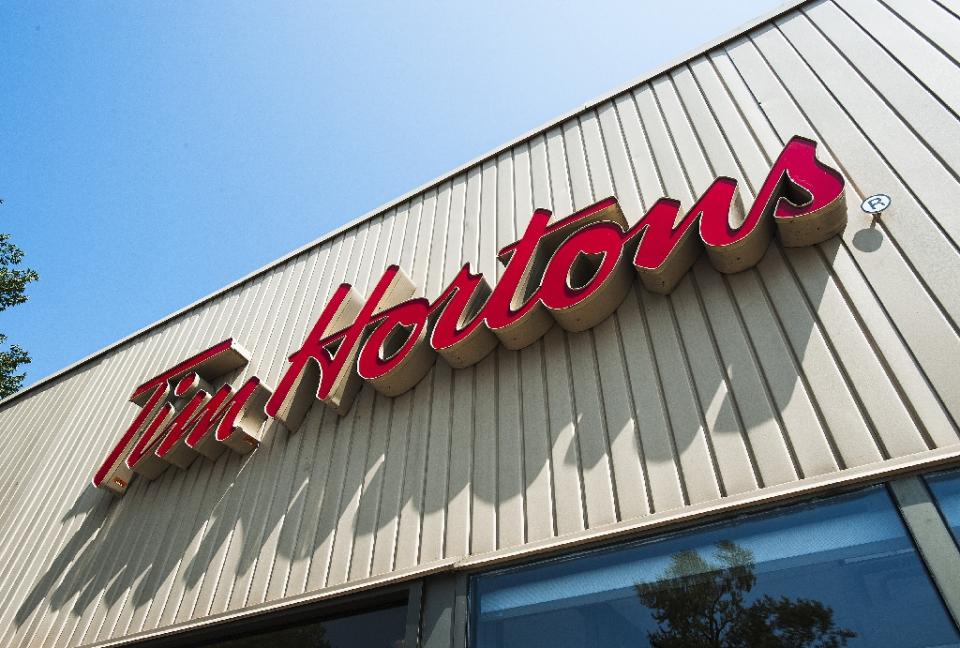Soaring profit at Tim Hortons parent company frustrates dissident franchisee group

A Tim Hortons franchisee group claiming to represent more than half of the coffee and doughnut chain’s store operators expects the 87 per cent second quarter profit surge reported by parent company Restaurant Brands International (RBI) will brew frustration among its members.
The Great White North Franchisee Association (GWNFA), and its U.S. chapter, has been at the centre of an ongoing public spat with RBI involving multiple lawsuits on both sides of the border.
Its members have accused Tim Hortons’ Oakville, Ont.-based owner of saddling franchisees with higher food and packaging costs, as well as increased expenses related to Ontario’s recent minimum wage changes, and mismanagement of advertising funds collected from store operators.
Patti Jameson, GWNFA’s director of communications, said she sees a direct connection between RBI’s profit uptick and the frustrations voiced by her group’s members.
“They are charging more for things like bacon than what other chains are being charged. And it’s the same equivalent product,” she said. “Everything from paper bags, to cups and lids, to the wraps that sandwiches are put in. It certainly adds to their profit levels, while it takes away from the store owner’s profits.” The GWNFA is currently suing RBI over the cost increases.
RBI spokesperson Devinder Lamsar called the claim “factually untrue” in a statement to Yahoo Canada Finance on Thursday.
“Tim Hortons profitability was actually down one per cent in the second quarter, which we very clearly disclosed was due to a decrease in profitability within our supply chain business,” she wrote. “This decline at Tim Hortons was offset by growth at Burger King and Popeyes.”
RBI, which reports in U.S. dollars and also owns Burger King and Popeyes Louisiana Kitchen, earned $167.6 million in its most recent quarter, an increase from $89.5 million in the same period last year.
Same-store sales, a key industry metric measuring sales at locations open for more than one year, were flat at Tim Hortons locations, compared to a 0.8 per cent decline a year earlier.
On an adjusted basis, the company earned 66 cents per share, beating analysts’ average estimates of 63 cents, according to Thomson Reuters. Revenue was $1.14 billion, missing estimates of $1.37 billion.
RBI is in the midst of rolling out a flurry of new initiatives at Tim Hortons stores aimed at boosting sales. All-day breakfast was launched last weekend, and plans are also said to be in the works for a children’s menu and app-based loyalty program.
Tim Hortons recently launched home food delivery in Vancouver, Ottawa and Edmonton. The company has also committed to invest $100 million to upgrade its supply chain to more efficiently distribute products to stores, hinted at plans to test digital-ordering kiosks, and announced intentions to renovate a number of its locations.
“We’ve also implemented biweekly all franchisee calls to discuss the status of our initiatives under the Winning Together Plan. This improved frequency and quality of communication with our franchisees has helped to further bolster support within the Tim Hortons system,” RBI chief executive officer Daniel Schwartz told investors on Wednesday’s earnings call.
Jameson said GWNFA representatives have been routinely excluded from dialogues between RBI and franchisees, a situation she claims is evidence of “a lot of discontent remaining throughout the chain.”
Jameson added that “fear of retribution” from RBI in the form of more stringent store inspections, or denying franchisees the opportunity to renew agreements to manage their stores, may be keeping some of her group’s members from speaking publicly about their frustrations with RBI.
“It’s bound to create discontent,” she said of RBI’s second-quarter profit figure. “One has to believe that it’s very frustrating.”

